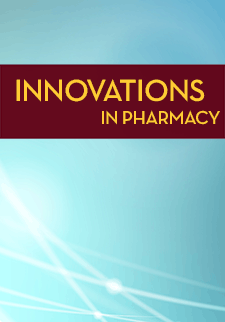Community-Based Pharmacist Anticoagulation Clinic Outcomes Compared with Physician Management
Iryna Kurochka
University of Pittsburgh Medical Center
Joseph Jadallah
Buford Road Pharmacy
Pramit Napdpara
Virginia Commonwealth University
Jean-Venable Goode
Virginia Commonwealth University
DOI: https://doi.org/10.24926/iip.v15i1.5929
Keywords: community pharmacy, anticoagulation
Abstract
Background: Warfarin has many indications; however, it is the only anticoagulant that is indicated for mechanical mitral value and antiphospholipid syndrome. Management may be conducted by pharmacists in medical clinic settings.
Objectives: To evaluate the percentage difference in the international normalized ratio (INR) target range when managed by a community-based pharmacist with a collaborative practice agreement (CPA) versus a physician and to analyze patient satisfaction of an anticoagulation clinic when managed by a community-based pharmacist with a CPA versus a physician.
Practice Description: Independent community-based pharmacy. Practice Innovation: Community-based pharmacist managed anticoagulation clinic. Pharmacist provides anticoagulation services under a collaborative practice agreement or conducts INR testing and reporting with physician management of anticoagulation.
Methods: Quasi-experiment study design with retrospective and prospective evaluation of warfarin management and patient satisfaction. A retrospective chart review was conducted of patients enrolled in the anticoagulation clinic from January 1st, 2020 to June 30th, 2022. Patients, 18 years or older with an indication for warfarin and attendance of at least 3 anticoagulation appointments were included. The Time in Therapeutic Range (TTR) was determined using the traditional method. TTR differences across the two groups were reported using descriptive, bi-variate, and multivariate statistics. All statistical tests were conducted using SAS 9.0. Patient satisfaction was collected for 6 months using a survey created by the investigators. Survey consisted of 18 questions using a 3-point Likert scale. Survey was assessed using descriptive statistics.
Results: Thirty-seven patients met the inclusion criteria, 26 were in the pharmacist management group with 609 appointments, and 11 patients were in the physician management group with 123 appointments. There was no statistical significance for the time in the therapeutic range between the pharmacist-managed group (60.7%) and the physician-managed group (59.4%); p-value of <0.829. Results of the satisfaction survey suggest that patients slightly prefer management by a pharmacist over a physician.
Conclusion: Community-based pharmacist warfarin management of time in therapeutic range was equivalent to physician management and with similar patient satisfaction.



